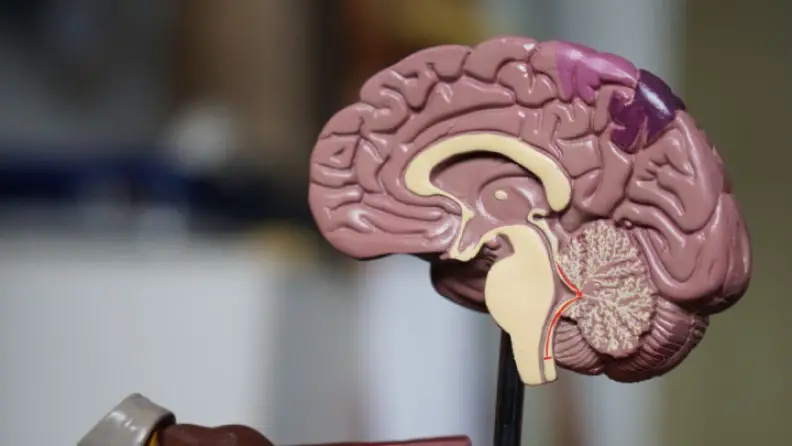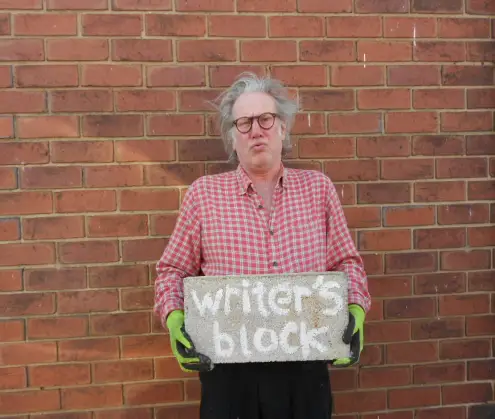Where Do Songs Come from ?
 Image courtesy of Nick Karvounis
Image courtesy of Nick Karvounis
To the human mind, songs often appear out of no-where. As if the mind is on autopilot, entertaining itself. Sometimes a voice is telling the writer what to write. Sometimes it's like background noise or a nearby radio playing short stories. It might also appear as a semi-audible ear worm, with musical phrases popping in and out of existence.
Why this happens is complicated, but it appears to be a combination of several things: a) a desire to write a song, b) a predisposition to be creative, c) the mind enjoying the sound of it's own voice, d) the mind just wanting to fool around.
If the songwriter is actively working on a project, they must be quick to catch the ideas which are best and write them down before they're lost. Chances are if they're missed, they're gone for good. Songwriters often find that as soon as they try to write down or record the idea they just had, it's vanished and can't be recalled. That happens because different parts of the brain are used for playing around in the 'creative zone' than those used for recalling what you just did. This is why experienced songwriters will tell you to 'just record everything.'
Which parts of the brain write the song ?
 Image courtesy of Robina Weermeijer
It's safe to say that in song writing involves several parts of the brain. They communicate with each other making connections and forming links where previously none existed. These links and connections eventually become the song.
Image courtesy of Robina Weermeijer
It's safe to say that in song writing involves several parts of the brain. They communicate with each other making connections and forming links where previously none existed. These links and connections eventually become the song.
Most of the creative process is believed to happen in the limbic system. It's a primitive part of the brain where memories and emotions are handled. The amygdala is thought to be the key processing area for emotional and associative learning. It also regulates attention and memory. The hippocampus also plays an important role with regard to new memories and is interesting here because it encodes emotional context from the amygdala.
The basal ganglia is also considered important in any creative activity because this is the region where vital automated skills for linking emotion and events are stored.
The frontal cortex handles short term memory so will be involved in storing ideas until they are put onto paper. The white matter region of the brain makes new connections enabling it to work faster, so this region will also be busy in creating a song. It's important to remember that a songwriter hears the music in the same way as the listener, so parts of the brain which don't like a particular set of sounds will produce unpleasant stimuli and precipitate rejection.
The first ever neuroimaging music and emotion study was conducted by Anne Blood in 1995. The aim was to explore the emotional dimension of unpleasant and pleasant musical harmonies. It found that the parahippocampal gyrus reacted to unpleasant sounds while the frontopolar and orbitofrontal cortex responded to less unpleasant sounds
So it's clear, many regions and processes are used in creating and replaying a song. It doesn't just happen in the left or right brain, it involves trial, error, filtering, and the forming of new connections in the brain.
This entire process also involves a considerable amount of emotional intelligence. A sensitivity to both conflict and joy and every other shade of human condition. This might be seen as a product of the mind rather than the brain. The software, rather than hardware. The songwriter needs to have buckets of empathy for the characters they portray. They need to be able to tap into the nitty-gritty of life issues and explore how the character came to adopt the attitude they have. This requires curiosity, determination and care, a hunger to understand life, if you like. And let's not forget, a song is always inspired by events outside the brain. It's a unique perspective which is the product of the brain, the mind, some diligent curiosity and real world experience.
But how does a person know which song ideas are worth keeping ?
 An idea is worth keeping if it is either, stimulating/entertaining, or fits in well with what the writer is working on. In the latter it's often a matter of judgement and experience. With the former, it's just a gut feeling but there's no mystery to it, we all know what a good song sounds like, right ?
An idea is worth keeping if it is either, stimulating/entertaining, or fits in well with what the writer is working on. In the latter it's often a matter of judgement and experience. With the former, it's just a gut feeling but there's no mystery to it, we all know what a good song sounds like, right ?
In both cases there's an element of momentary madness, in-so-much-as, you have to be thinking in obscure avenues to have come up with it in the first place. But that's vital for the creative process, otherwise all our songs would sound the same. Sadly, it's also true that many of these brilliant ideas are binned once they've had time to cool down because the writer realises they were crack-pot ideas, or don't fit the brief or aren't that interesting after all.
How do I get into the creative zone ?
The amount of creative mind chatter varies considerably, from being very active early in the morning, to non existent later in the day. Almost everybody has some but it's usually content to occupy itself with day to day stuff about jobs, cars, partners, neighbours, hair, teeth, shoes, kids, dogs, and what ever else your mind finds stimulating.
Setting aside time to create is the most important thing and you don't have to be sitting at a desk. In fact, it's usually best to be doing something unrelated and repetitive which requires little thought. House work, painting a fence, gardening, walking or any other form of exercise is great for stimulating the inner muse. A combination of rhythm and increased oxygen seems to be perfect for the creative process to kick-in with little or no effort.
Sitting with a blank screen thinking, 'now I must be creative,' might also work. But don't be surprised if it doesn't because, as already mentioned, thinking about something and the creation of new ideas use different parts of the brain. An experienced writer will be usually be able to sit with an instrument and knock out something new in pretty short order, but not always.
There are periods when the mind will not create anything at all. If the writer is searching for ideas and they just won't happen, we call this 'writer's block.' An experienced writer will have several methods to help stimulate creativity, some resort to taking drugs, others listen to stimulating music or going for a walk. A combination of exercise and perseverance appears the most sensible and reliable.
What do I do if I have writer's block ?
This happens just about everyone. It's caused by those creative parts of the brain not being 'warmed up.' And it's a good analogy to treat brain as an engine. But one that needs several different types of fuel.
- Fuel Type 1. Listen to other artists' music – especially in the style you are writing.
- Fuel Type 2. Use a Feel Wheel to get inside your character's head – feel their attitude.
- Fuel Type 3. Exercise or do boring work that has a rhythm – move – set your mind free.
- Fuel Type 4. Sit/stand with instrument – make any noise which sounds like the emotion.
 Remember, a songwriter is in a much better position than any other artist when it comes to writer's block because, a) music encourages movement, and b) you have an instrument to take out your frustrations on. So move around and make your instrument do some work, after all, isn't that why you bought it ? I've written a whole article on writer's block which offers more help and goes into much greater detail, you can read it here.
Remember, a songwriter is in a much better position than any other artist when it comes to writer's block because, a) music encourages movement, and b) you have an instrument to take out your frustrations on. So move around and make your instrument do some work, after all, isn't that why you bought it ? I've written a whole article on writer's block which offers more help and goes into much greater detail, you can read it here.
A Brief Summary
Songs are created by a songwriter making connections between real life events and emotions. The mind of the songwriter will often make up parts of songs automatically whilst doing other tasks, but their mind must be fuelled up and willing to be sensitive to characters in the song.
Connections are made by several different parts of the brain which link memory, recall and emotion. Some of these regions of the brain are quite primitive. Other so called 'higher functions' are needed to write down or record what the brain/mind combination produces.
Connections are fleeting. It's very common for writers to have forgotten a brilliant idea they had only seconds before. It's also common for them to have no ideas at all.
